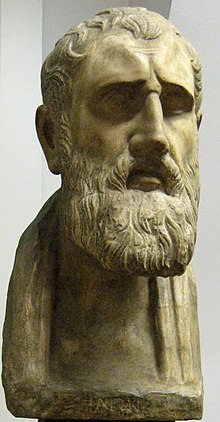Our website is made possible by displaying online advertisements to our visitors.
Please consider supporting us by disabling your ad blocker.
Natural law

Natural law is the idea that there are forms of law that exist by themselves in nature, regardless of whether people exist or recognise them or not. Unlike other forms of law (called positive laws) that have been agreed on by society, such laws would be given to all, and would not be possible to go against. Such rights are called natural. In modern times, human rights are often seen as coming from natural law, but the idea goes back to Ancient Greece.
Natural law is often founded on the following:
- God, who created natural law with creating the world
- Logos, an idea from philosophy; this is interpreted to be divine law
- Part of natural law inside human beings (called Self-knowledge, sometimes conscience)
- Certain laws that can be deduced from the natural sciences
- Nature itself
- Reason
Important philosophers who developed natural law include Aristotle, Plato, Seneca the Younger, Thomas Aquinas, and Immanuel Kant. People who criticized this approach include Jeremy Bentham and Hans Kelsen.
Previous Page Next Page


